Calhoun, Murray & Franklin:
Community condemns decisions
On Wednesday, April 27, University President Peter Salovey announced long-awaited decisions on the names of the two new residential colleges, the naming of Calhoun College and the title of residential college master. See the News’ full coverage below.
COVERAGE
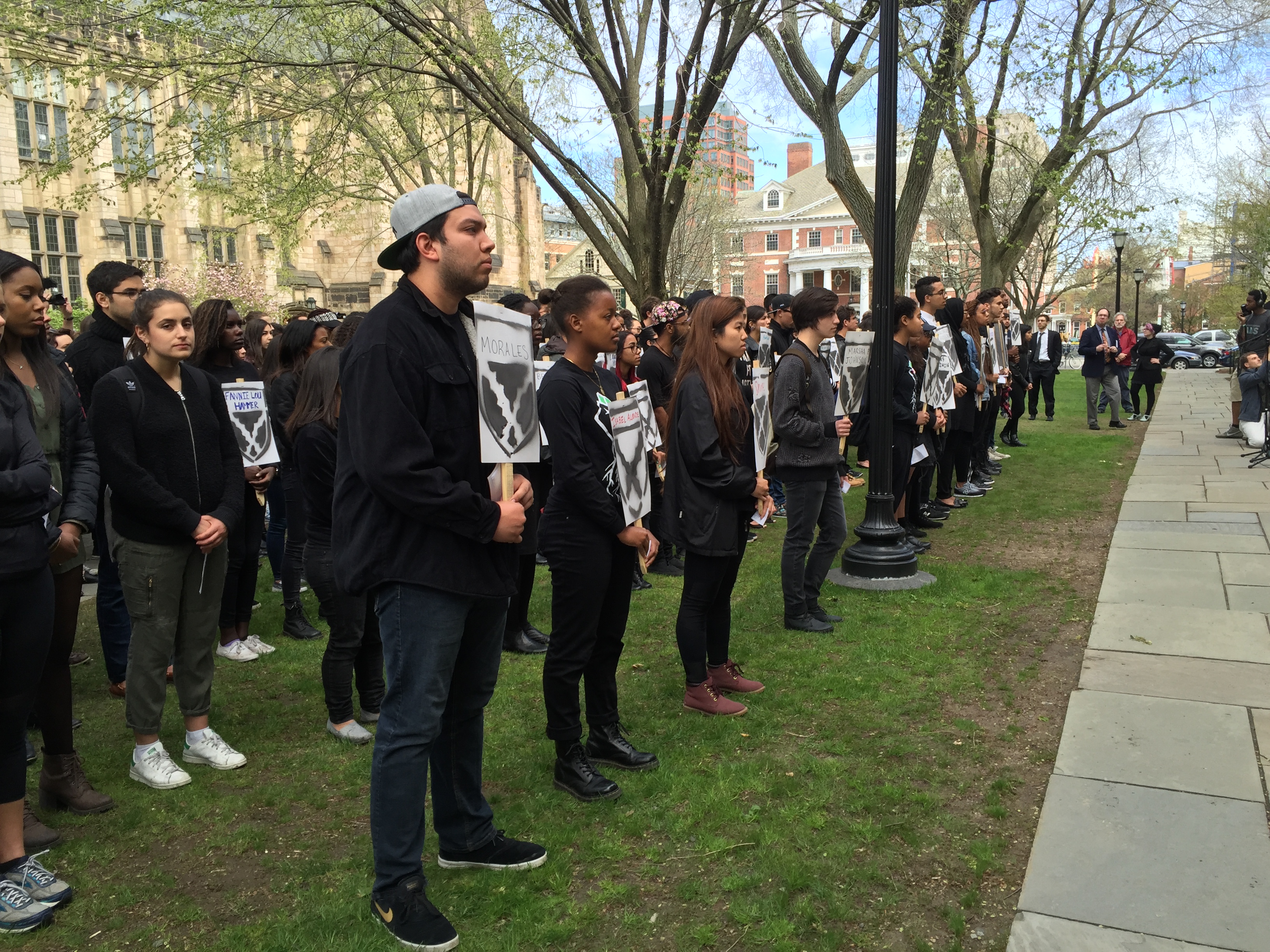
Students hold Calhoun renaming ceremony
Hundreds of activists and their allies gathered in front of Calhoun College Friday afternoon to protest the Corporation’s decision to retain the college’s name and rechristen it as “the college formerly known as Calhoun.”
Holding signs inscribed with potential replacement namesakes, such as Grace Hopper and Edward Bouchet, students dressed in black lined up in front of the college. A handful of activists spoke to the audience of roughly 600, lamenting that the University has honored a white supremacist for more than 80 years and explaining that the gathering marks the first step toward a new path. One speaker explained that Calhoun College will not be given a new name yet; rather, students will take a moment to reflect first. Others read spoken word poetry, sang “Lift Ev’ry Voice” and decried the “historical and ongoing injustices” enabled by Yale administrators.

Students confront Salovey at town hall
As a shower of fake $1 million bills rained down upon him, University President Peter Salovey found himself confronted with questions about race, money and historical memory on Thursday.
The bills were thrown by dozens of students in the balcony of Battell Chapel who were angry about the recently announced decision to retain the name of Calhoun College and to name one of the two new residential colleges after Benjamin Franklin. Salovey — who stood ashen-faced as students passionately questioned him, sometimes shouting to make their voices heard — hosted the town hall to hear student reactions to the controversial decisions. Hundreds of students attended the event, and student activists formed a particularly prominent block at the front of the chapel; many wore duct tape over their mouths and custom T-shirts protesting the decisions.
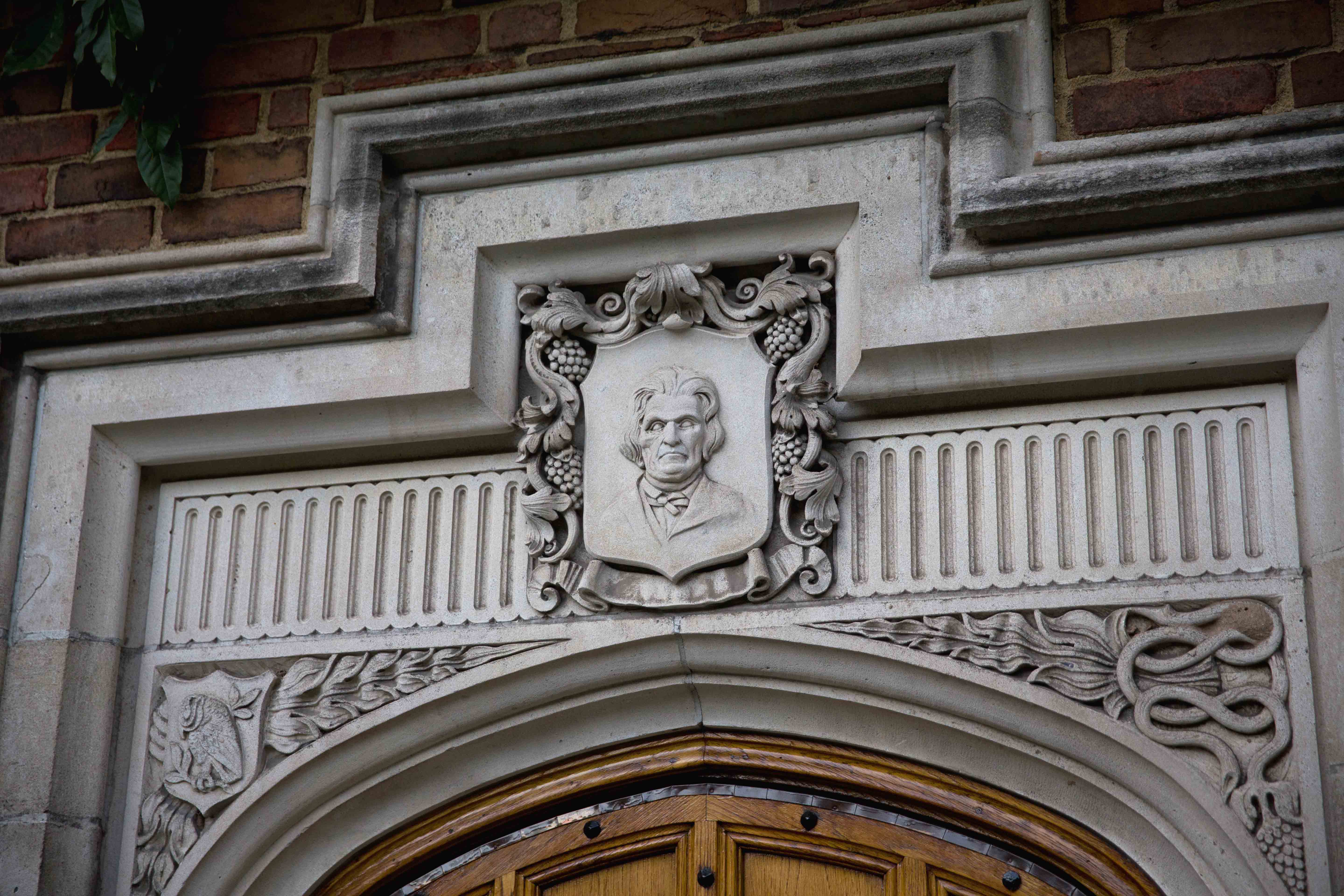
Calhoun grapples with fate
Austin Strayhorn ’19, a student in Calhoun College, was napping in his dorm room when the University announced Wednesday evening that it would retain the name of the college. He was awakened by screams of disgust from the next room, as his suitemates reacted angrily to the news.
“The next couple weeks, it’s not going to be easy to be here [in Calhoun College],” said Strayhorn, who is African-American. “This thing hasn’t made it easier on the students of color … We’ll find other places to be.”
The naming announcement — which came in a Wednesday evening email from University President Peter Salovey alongside verdicts on the title of “master” and the naming of the two new residential colleges — has provoked a furious reaction from student activists both within Calhoun and throughout the larger University community.
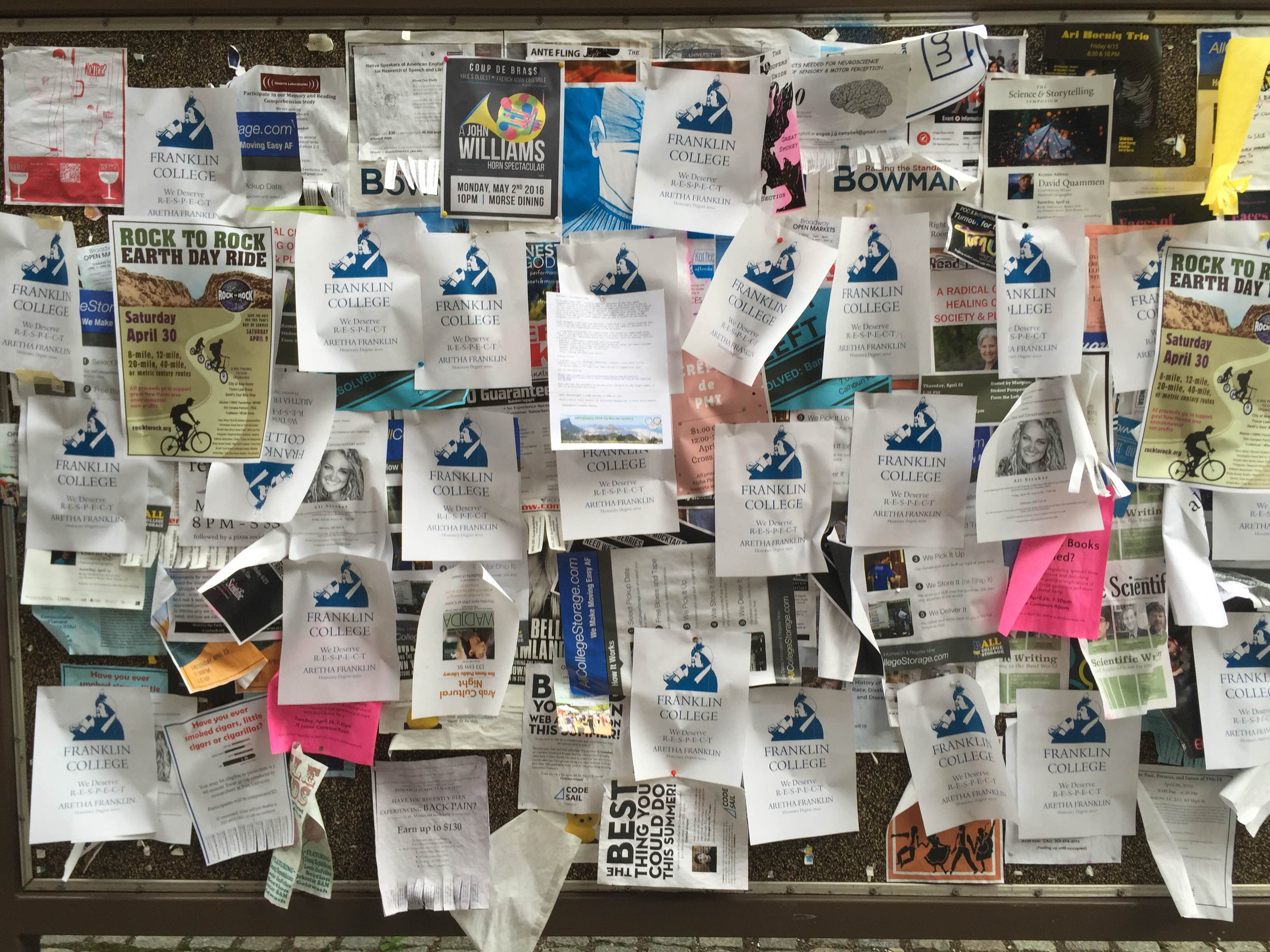
Students rechristen Franklin College
In response to the University’s announcement that it will name one of the new residential colleges after Benjamin Franklin, some students have adopted a different Franklin to stand in as the college’s namesake: legendary soul singer Aretha Franklin.
In a campuswide email Wednesday afternoon announcing the naming decision, University President Peter Salovey acknowledged Benjamin Franklin’s accomplishments in “the arts, the sciences, government and service to society.” Salovey wrote that Franklin was also selected as the college’s namesake because he is a “personal role model” to Charles Johnson ’54, whose $250 million donation toward the new colleges’ construction was the largest gift from a single donor in the University’s history.
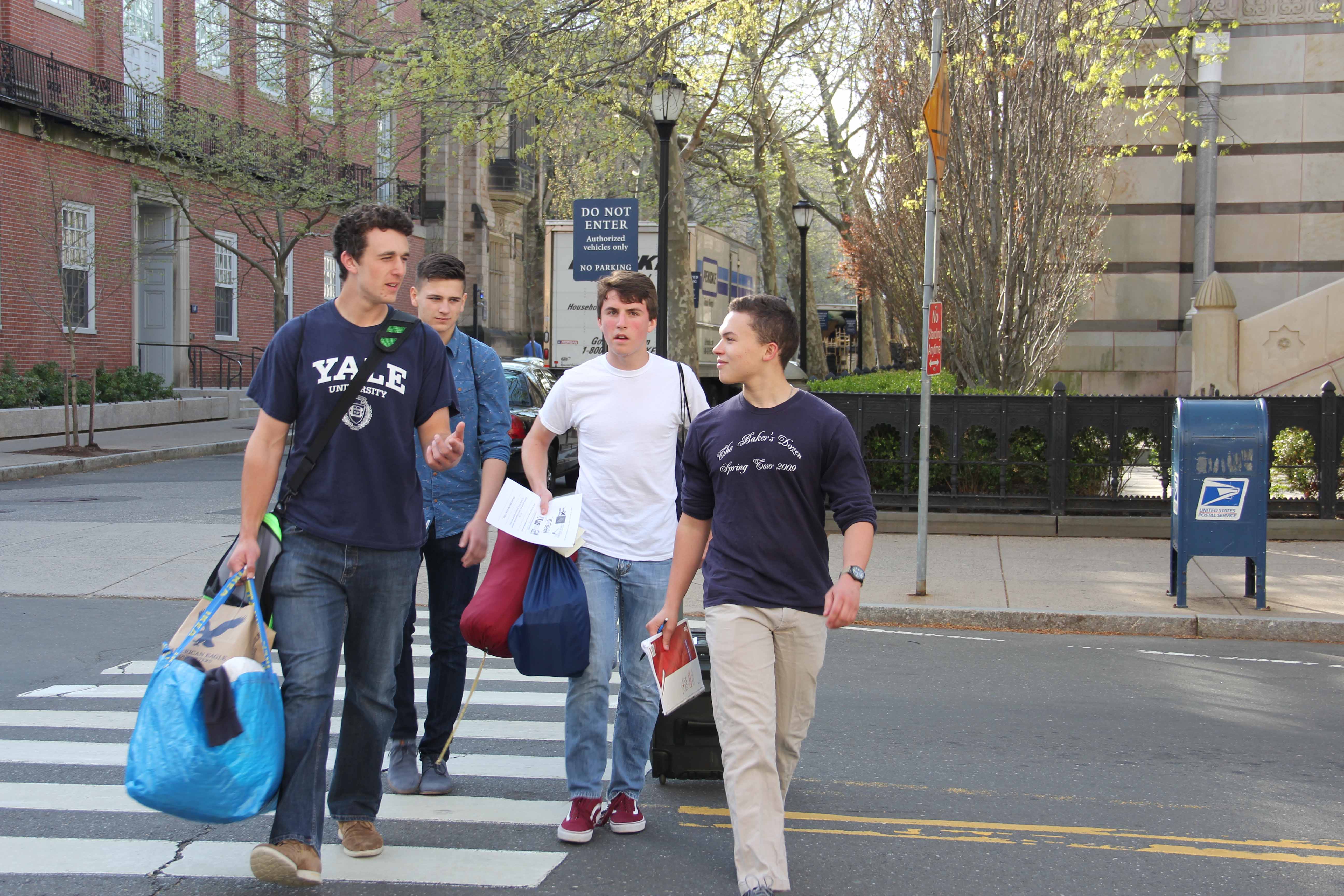
Prefrosh weigh names, choices
Sidney Saint-Hilaire, an admitted student from New York who is African-American, said the University’s decision has given him pause about committing to Yale, adding that schools like Brown work harder toward faculty diversity and inclusion for people of color in general.
“Less than a day after I sent in my early action application, I turned on the television and saw Yale students protesting the University’s refusal to protect [people of color] on campus intellectually and morally under a guise of preserving free speech,” Saint-Hilaire said. “I was ashamed of the University, but it was my pride in the students that stopped me from rescinding my application. I feel that same feeling sitting here less than 24 hours after Bulldog Days, on the verge of committing, and looking at this news.”
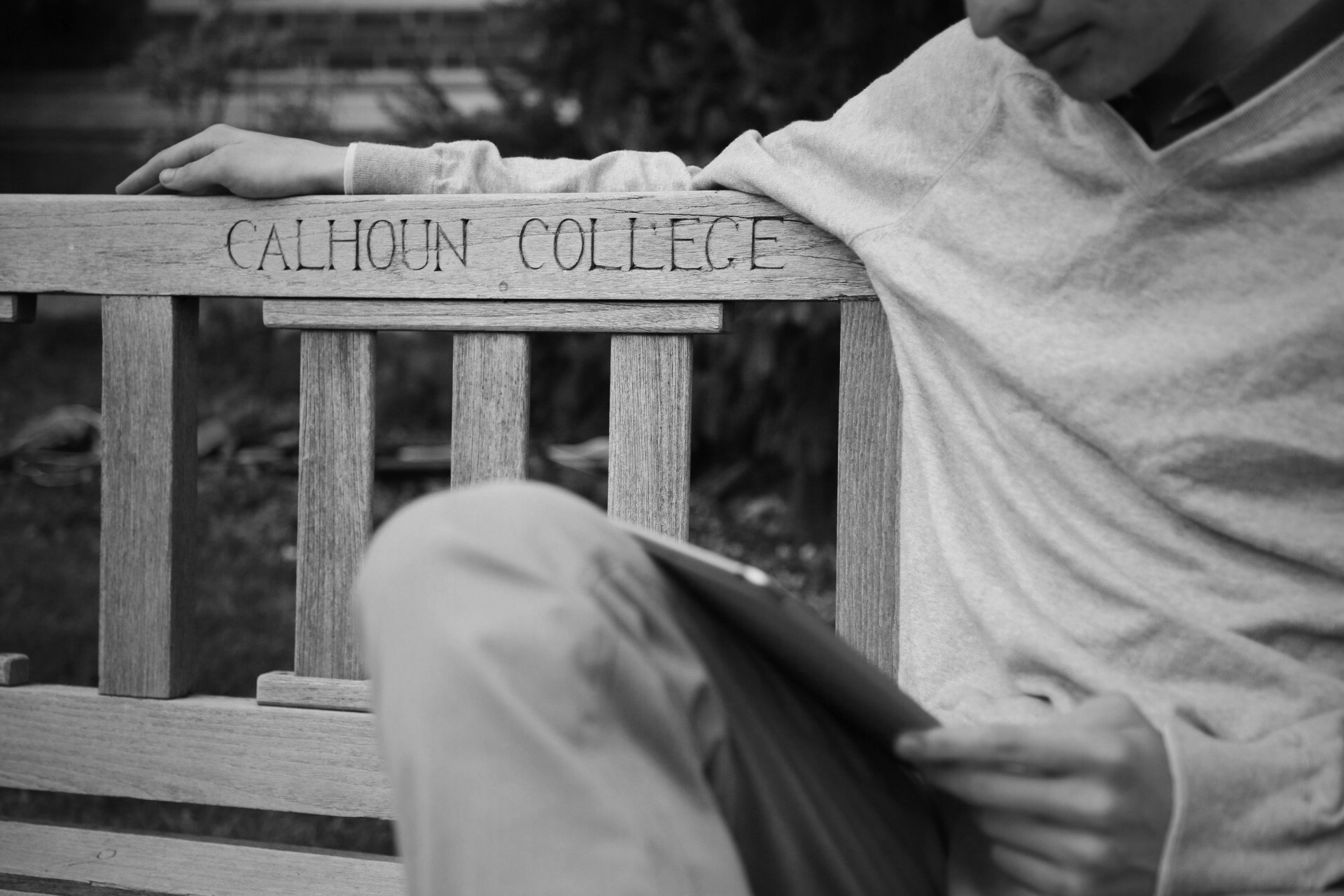
Alumni weigh in on names
In the hours after University President Peter Salovey announced resolutions to three long-standing campus naming debates, the decisions reverberated throughout a community of over 150,000 Yale alumni worldwide.
In a campuswide email on Wednesday, Salovey wrote that Calhoun College would not be renamed, the title of residential college master would change to “head of college” and Yale’s two new residential colleges would be named after Anna Pauline Murray LAW ’65 and Benjamin Franklin. Salovey made it clear from the outset of the naming debates that alumni opinions — along with those of students, faculty and staff — would be considered in the decision-making process.
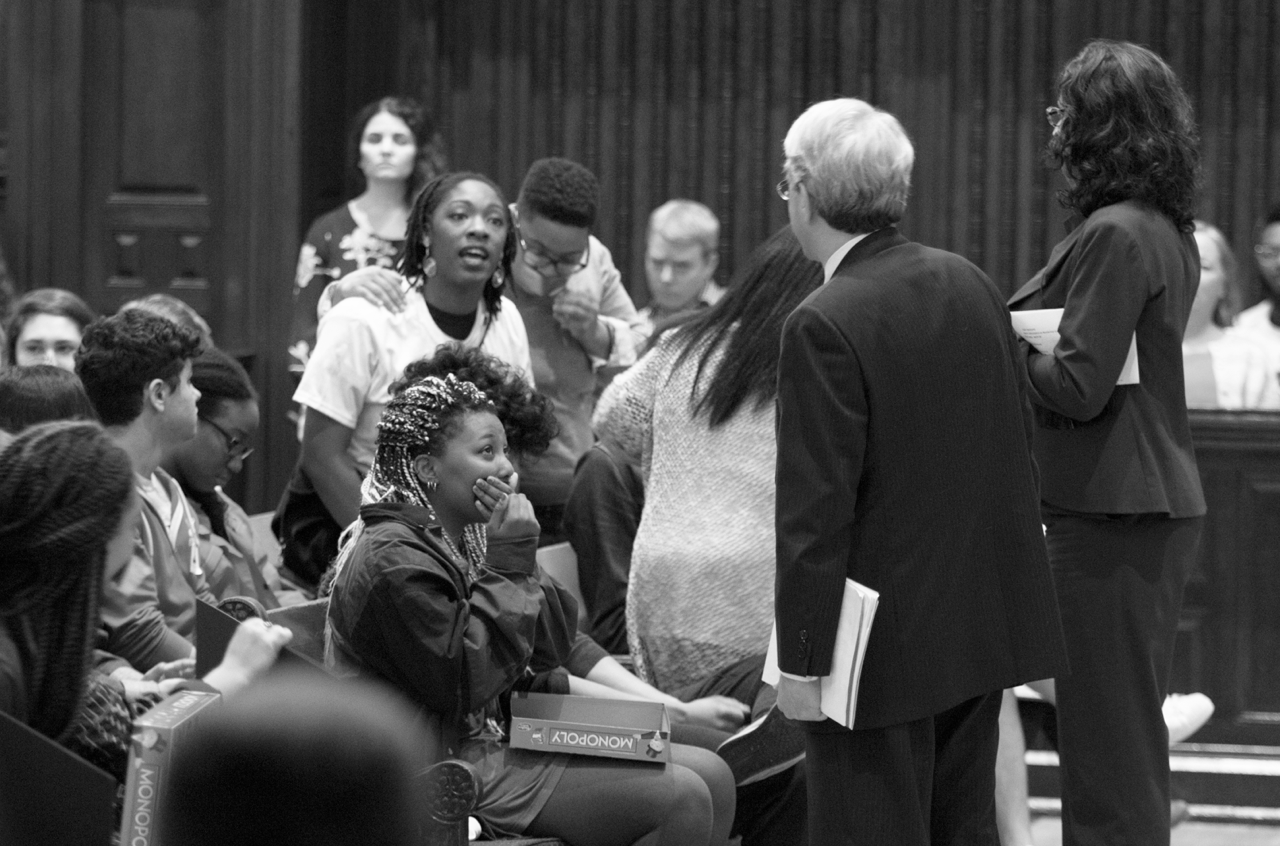
ANALYSIS: Salovey stands alone
On Wednesday, Salovey announced the names of the two new residential colleges, the elimination of the title “master” and the retention of the name of Calhoun College. The timing of the decisions, as well as the maintenance of Calhoun and establishment of Benjamin Franklin College, have sparked fierce reactions from many student groups, including those who were particularly vocal last semester on issues of race, diversity and inclusion. By penning the announcement email and hosting a heated town hall the next day, Salovey has sent a clear message: he wants to be held accountable for these decisions.
“I am the president of Yale,” Salovey told the News after the town hall. “It is my job to take responsibility, to listen and to connect with our community.”
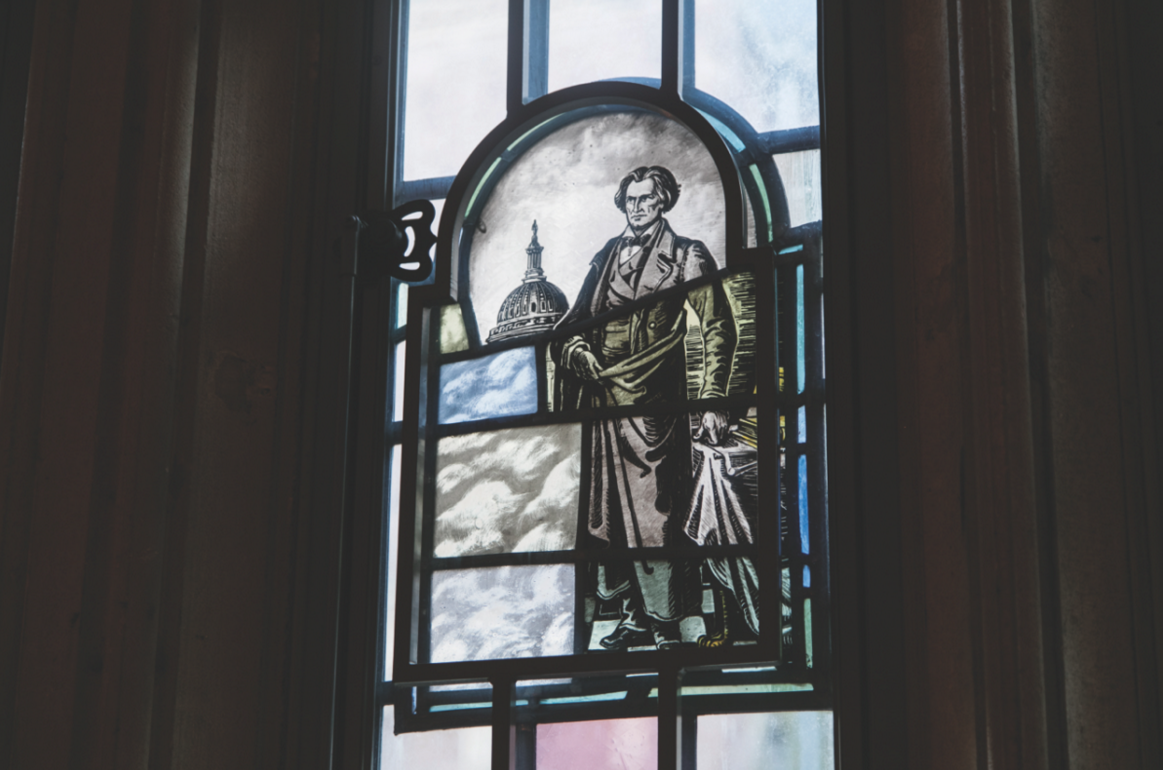
Calhoun to remain namesake
In 1931, the University named a residential college after John Caldwell Calhoun, one of the fiercest advocates of slavery in American history. Eighty-five years later, following heated campus protests and more than two decades of debate over the college’s namesake, the University reaffirmed its decision.
University President Peter Salovey announced the decision to retain the name of Calhoun College as part of a community-wide email Wednesday evening. The controversy over Calhoun — named for the senator, vice president and notorious slavery advocate who graduated from Yale College in 1804 — has spanned a generation. But the naming debate, like a number of similar discussions at colleges across the country, gained new momentum this fall as racially charged protests shook campus.

Pauli Murray LAW ’65, Benjamin Franklin honored
Anna Pauline Murray LAW ’65, the first woman or person of color to be honored by the name of a college, was a co-founder of the National Organization for Women, a famous civil rights activist and the first African-American to graduate from Yale with a doctorate in juridical science. Murray, who was queer, also received an honorary degree from the Divinity School in 1979. Salovey called her a champion of racial and gender equity, adding that Murray represents “the best of Yale: a preeminent intellectual inspired to lead and prepared to serve her community and her country.”
Benjamin Franklin, the other namesake, never graduated from Yale, although he did receive an honorary degree in 1753. The founder and a former president of the University of Pennsylvania, Franklin was a member of the “Committee of Five” that drafted the Declaration of Independence. As an innovator and self-taught scientist, Franklin also invented the lightning rod and made key scientific discoveries related to electricity and the wave theory of light. Salovey wrote that Franklin’s “commitment as a scientist, statesman, philosopher and writer” have shaped America.
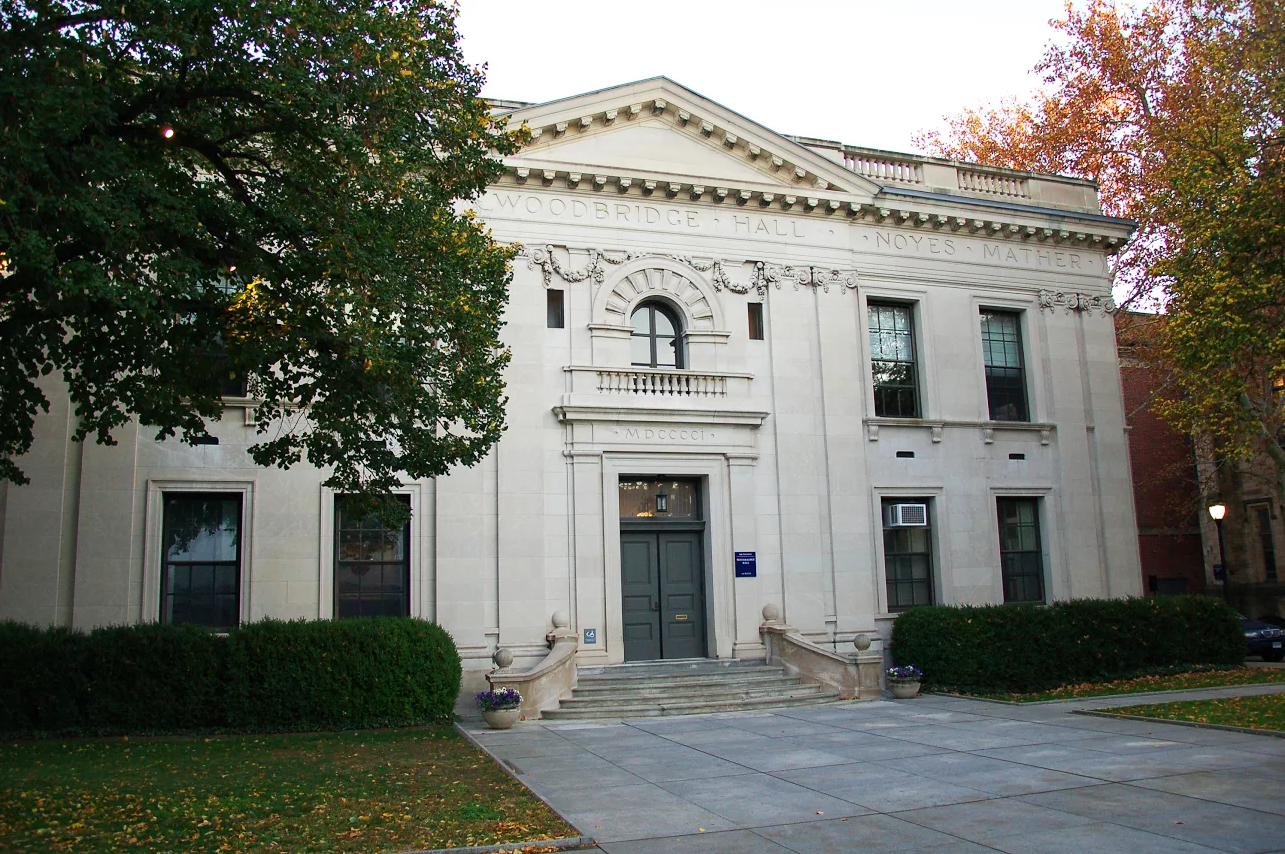
ANALYSIS: Who was this for?
Renewed debate over Calhoun College and the title of master emerged at the beginning of the 2015–16 academic year, while students and alumni have been debating the names of the new residential colleges since their construction was announced in 2008. But on Wednesday, Salovey announced the outcome of each debate in one fell swoop, answering three separate, distinct questions in one University-wide email.
The choice to intertwine these decisions begs the question: What, if anything, was the University’s broader strategy?
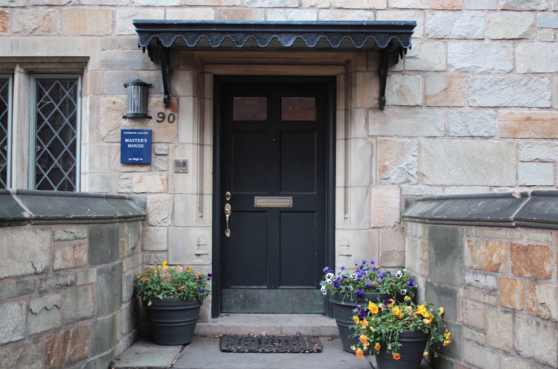
“Master” to become “head of college”
An hour after naming David Evans ’92 the new head of Berkeley college, University President Peter Salovey announced in a campuswide email that Yale will discard the title, replacing it with “head of college.” Salovey’s message also included two other key naming decisions regarding the name of Calhoun College and the two new residential colleges.
Pierson head of college Stephen Davis opened a conversation about the title last August when he asked Pierson students to stop referring to him as “master,” citing concerns about the term’s associations with slavery and oppression. In the subsequent months, the title has generated heated debate on campus, as students, faculty and alumni have expressed emotions ranging from support to disdain for Davis’ request. Because the title was built into the University bylaws, the Yale Corporation held the final say. The body made the decision to change the title during its April meeting — months after Harvard and Princeton announced a similar change in the title in their residential systems.
OPINIONS
NEWS’ VIEW: Our missed opportunity
Amidst the tears and painful conversations last semester, a note of optimism hung in the air. The March of Resilience in November affirmed a widespread commitment to, in University President Peter Salovey’s own words, “a better Yale.” Student activists delivered concrete policy demands to administrators, with some tangible results. Despite the University’s past failures to address the concerns of students and faculty of color, there was a glimmer of hope.
At around 5:30 p.m. Wednesday, that hope was unceremoniously dashed.
SALOVEY: We cannot seek truth by hiding it
Although one may feel disappointment and even anger at some aspects of the decisions announced on Wednesday, the decisions connect to the mission of the University in ways that can inspire us to improve the world. These are turning points toward a better Yale, a bright future we can make by joining from our individual points of view, honestly examining the past and committing to work together to strengthen our common ties.
Yale’s motto is “light and truth,” and we cannot seek the truth by hiding it. As a University, as students and faculty, we search out knowledge and pursue discovery. We cannot inhibit this pursuit by marking the ugliest aspects of our own nature “off-limits.”
MIELE: What we taught at Yale
I almost didn’t go here. It took three adult women (my mother, a family friend and a teacher) to convince me to apply to Yale after I was named a QuestBridge finalist. I argued with them — I shouldn’t even bother applying. I wasn’t good enough. But they convinced me to give it a shot.
I know better now: I am good enough. It took four years, international headlines, many tears, sleepless nights, protests, tremendous love and spiritual reawakening for me to understand that every moment I have spent at Yale is an act of defiance. I am a woman of color who has attended an institution that, for most of its existence, did not think a person like me was worthy of an education.
TIRUMALA: Everyone’s human
In the coming days, many students will be inundated with Facebook posts eviscerating the Yale administration and Corporation — and for good reason. It’s duplicitous to change the title of “master” because it makes some students feel uncomfortable, but keep the far more disturbing name of John C. Calhoun emblazoned on a residential college. It’s also strange, if not entirely absurd, to name a new residential college after Benjamin Franklin.
But that’s about all I want to say about that. What I’m more interested in is the way students and administrators appear to conceive of one another.
NIERENBERG: Money talks
One of my all-time favorite movies, “All the President’s Men,” offers the best advice I’ve ever received as a journalist: Follow the money. Certainly, that was true for the Watergate scandal, the subject of the film. And it’s true now — especially in the names of our two newest colleges. Let’s follow the money. It’s the most obvious lead here.
Although the size of our endowment may suggest otherwise, Yale is a nonprofit entity. A nonprofit seeks revenue, yes, but also adheres to its mission. In reflecting on our two newly named additions to Yale, let’s take this two-pronged approach: We must consider both wallet and mission.
SHERLEY: The same Yale roots
Yale says that it respects civil dialogue. But these decisions reveal to us that what Yale really respects — power. This campus had a civil, well-researched, passionate dialogue about Calhoun College for months. The News reported that the average student on campus thought the name of the college should be changed. Surely, the Yale Corporation knew this, so why did they decide to keep the name?
Yale is obsessed with its history, but only a certain version of it. The story goes that people like John C. Calhoun (or even Benjamin Franklin) are great men whose racism is just a blight on their pristine legacies. However, this is only partly true. Men like Calhoun were essential to the history of this country. But their racism is not just a stain; it was integral to the vision of the United States that people like him were working towards.
ARONSON: The Case for Dr. Franklin
What’s against him? Principally, Franklin did not earn a degree at Yale — he was granted an honorary one. I have spoken with several people very concerned about this apparent departure from the tradition of naming colleges after Yale grads. Fortunately, the leaders of Yale wisely remained within the school’s ancient practice concerning names of residential colleges. Berkeley, Davenport and Pierson are named for people who did not graduate from Yale. And Trumbull — like Franklin College — is named for the (Harvard-educated) holder of an honorary Yale degree. There’s also the matter of Franklin’s skin color and sex. But why should this be a point against him? Franklin, like his collegiate sister Pauli Murray LAW ’65, is just the sort of person Yale should want its students of every color and both sexes to emulate.
ZHANG: For the students
This is for the senior who will not have a college named after her: who feels the ghosts of slaveowner’s past yanking a rose stem out of her throat, who slit her tongue and watched the blood spill in October — how it flowed into the palms of a thousand newspapers, how the nation glared at those seeds of hope, how the fire blazed in the distance, how the students stood there in the rain like something beautiful would grow out of pain.
GOLDENBERG: One step forward, two steps back
President Peter Salovey’s announcement yesterday regarding the names of the residential colleges was profoundly discouraging. The potential renaming of Calhoun and the christening of the two new colleges were excellent opportunities to move Yale forward, to celebrate our diversity as well as our excellence and to reject some of our beloved institution’s most troublesome legacies. This was a time for Yale to shed some of its worst legacies of exclusion and stodginess. Unfortunately, Salovey seems to have squandered that precious opportunity.
STERN: We should say no
To President Peter Salovey, to the members of the Yale Corporation, to all who played a role in choosing to retain the name of Calhoun College and in choosing to christen Benjamin Franklin College, I say no.
Much has already been said about these decisions, and much will undoubtedly be said in the days to come. The universally outraged reactions on social media were telling. The decision to change the title of “master” is long overdue, and the choice of honoring Pauli Murray LAW ’65 is an inspired one; she was a pioneer and is an inspiration. But Calhoun and Franklin — oy vey.

